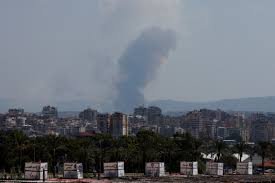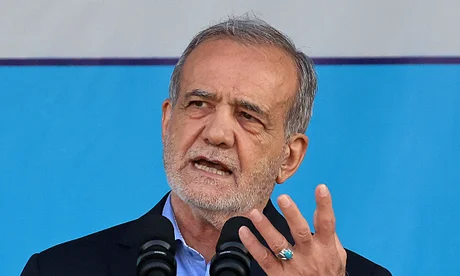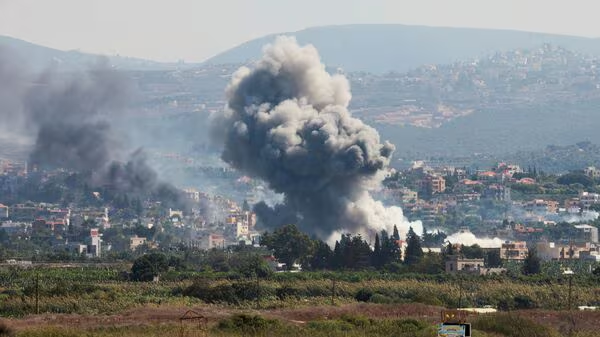| In Short |
| The Israel-Hezbollah conflict has escalated with recent clashes, raising fears of a wider regional conflict. |
| The United Nations has urged both parties to exercise restraint and is advocating for a diplomatic resolution. |
| Iran’s support for Hezbollah adds a layer of complexity, potentially risking further regional instability. |
| The ongoing violence has displaced civilians, raising humanitarian concerns on both sides of the conflict. |
| International actors are urging dialogue, emphasizing the need for a ceasefire to prevent full-scale war. |
Fighting between Israel and Hezbollah has resumed in recent weeks, with tensions bursting into flame. The latest flare-up is firmly entrenched in the greater Israeli-Lebanese tensions and in Hezbollah’s growing regional influence. Given the two parties’ war-ravaged past, recent escalations have ushered the attention of the world and instilled fears of a full-scale regional escalation.
Casualties Caused by the Recent Conflicts
Violent clashes have recently been recorded at the Israeli-Lebanon border, where several casualties and injuries have been reported. Following retaliatory missile attacks blamed on Hezbollah militia, a number of airstrikes were carried out by the Israeli Defence Forces (IDF). In retaliation, a group of Iran-backed forces known as Hezbollah has fired rockets into northern Israel. The attacks have left considerable destruction and have displaced the local population.

Reports indicate that many civilian and military objectives are attacked and heavy casualties are inflicted on both sides. The cycle of aggression continues when Hezbollah asserts it is only retaliating against Israel’s “aggressive policies,” but Israel asserts it is the exercise of its right to engage in defense for its sovereignty and citizens.
UN and International Involvement
In this context, the worsening scenario has led to the intervention of the United Nations and other international actors that have been appealing for restraint from both sides. During a recent meeting of the United Nations, Secretary-General António Guterres expressed grave concerns at the prospects of a full-scale war. He had said that the region cannot afford another large-scale war. Rather, he appealed for a quick stop to the war and called for the opening of all the channels of diplomacy for resolving the tensions.

Relations between Hezbollah and Iran in the Region
Perhaps one of the most concerning and serious aspects of this conflict is Iran’s involvement in this fight. A major funder of Hezbollah, Iran’s involvement only creates a host of questions about the broader geopolitical implications of this skirmish. Most experts opine that any increase in the violence between Israel and Hezbollah would draw in Iran and watch a relatively major engagement in the region.
This further complicates matters with the added leverage over Hezbollah and strained relations with Israel. The situation has been a cause for concern in Lebanon and Israel and among neighboring states, who fear spillover effects on its civilian population and humanitarian interests.
Effects on the Civilian Population and Humanitarian Interests
On both sides, nascent violence has extended into civilian sectors as recent clashes between Hizballah and Israel have sharply increased refugee displacement from the southern districts of Lebanon. Increased requirements for medical care, food and shelter are being reported by humanitarian organizations as innocent lives and infrastructure face disruption.
The Israeli government has already warned residents living on the border to be on high alert as the Lebanese government threatens to call for foreign assistance to cope with the crisis. If urgent steps are not in place, humanitarian effects of this conflict could be disastrous with thousands of people potentially displaced.
Israeli Response and Military Strategy
Israeli Prime Minister Benjamin Netanyahu again reiterated the country’s stand to not tolerate attacks on its territory. The Netanyahu government has been vocal enough that any aggression by Hezbollah will face a sturdy military response. The IDF continues building up its defenses on the northern border, with even more deployment of troops and equipment in place, according to reports.
Israel’s military strategy has been oriented at the inactivation of Hezbollah’s capabilities as well as its missile launch site in the first place. On the other hand, if airstrikes on strongholds are part of strategy, this likewise brought to its cause further escalation and prolonged drawn-out confrontation.
The Role of the International Community
The international community has been placed on high alert by the continuing escalation and notable countries like the United States, Russia and members of the European Union are calling for restraint. The United Nations Security Council has implored an emergency session to address the situation while urging for dialogue and diplomacy as a means to put further escalation off.
Regional actors like Egypt and Jordan have even been willing to act as intermediaries, attempting to bring the two warring parties to a negotiating table. Yet, this cease-fire is still too heavy a burden for both warring sides in the light of the brutal animosities and a history of war.
Prospects for Peace and Future Outlook
The Israel-Hezbollah conflict has reached its critical point with an unravelling implication of a spillover. It could be on the way to its own downfall if not taken care of immediately. Against this backdrop, the fear prevails that even a small incident can develop into a larger war between the regional powers, pushing tensions a notch higher.
For any chance at peace, however, Israel and Hezbollah will both need to agree to sit down in a dialogue, pull the guns off of each other and find a way to live with one another. International actors also have to play an active role where negotiations can be balanced, objective and geared towards a long-term resolution.
A Call for Peace Amid Rising Tensions
This leaves the caveats of peace open in the conflict between Israel and Hezbollah. This could easily turn into a full-fledged war if restraint were to be ignored and failed to be taken seriously by parties involved. Today, the region stands at a very sensitive crossroads where the world collectively holds its breath for peace resolution which tends to stress the need for security and welfare of civilians.
For Latest News Updates Click Here
